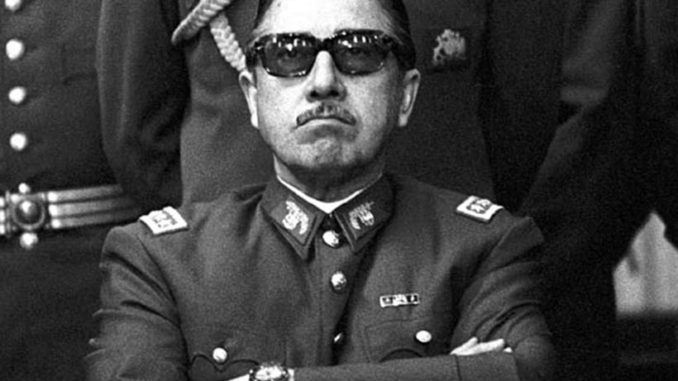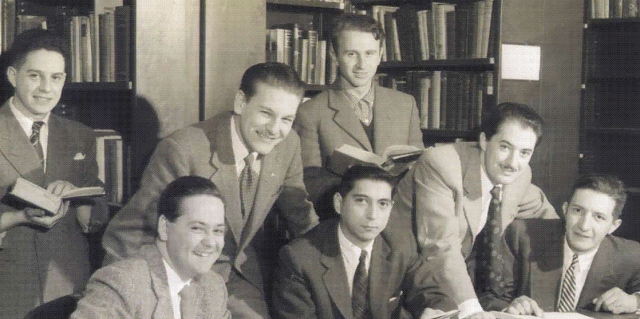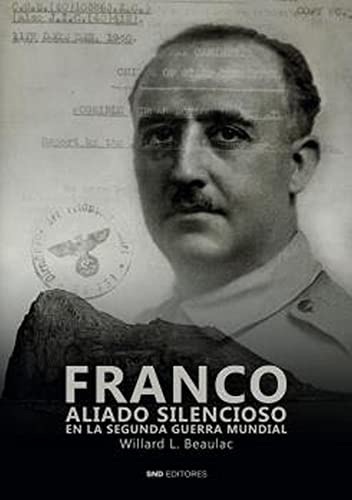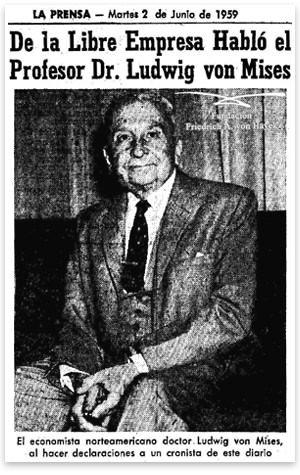
Novembre 16, 2023: IP Noticias a news programme from Channel Nine in Argentina were in the streets of Buenos Aires. With less than a week before the final vote that next Sunday in the 2023 presidential elections. One of the journalists stopped a “Chilean family” asking them for whom they intended to vote. The young woman with pink hair and her dad noted that they wouldn’t vote (because they can’t) but quickly added that if she could she would vote Massa. The interview went like this…
We’re not from here [said the Chilean girl]
https://twitter.com/_IPNoticias/status/1725150992625201462
But if I could vote I would vote for Massa.
Because Milei is sick.
Really, I don’t get it why people could have confidence in someone so obviously insane.
Here you have everything that we’re fighting for in Chile, free education and free “public” healthcare.
I don’t get why you would want to give this up by voting for Milei.
[Milei] is crazy, he’s REALLY crazy, I just don’t get it.
Privatizing public healthcare gives me the shivers (Added her Father).
We’ve been suffering from all of this for many years now.
Since the [Pinochet] dictatorship and it‘s horrible.
Education these days in Chile costs $50,000 per year, at University level.
Don’t lose this guys please! Argentina, rationality, think about it, don’t lose what you have.
We’re saying this with all our heart, we Chileans, who’ve been suffering many years now.
Una familia chilena que se encuentra recorriendo el país manifestó su desconcierto ante la intención de voto al candidato de LLA. SomosPM con @maxilegnani y @PaulaDambrosio1 Informó @brensi
https://twitter.com/_IPNoticias/status/17251509926252014
Villaruel and Milei, Pinochet and the Chicago Boys
What do Milei and Villarruel have to do with the Chicago Boys and Pinochet? Well not a lot and yet quite a lot! Why did the Chilean father mention the dictator Pinochet and why did he ask “Don’t lose this guys please! […] think about it, don’t lose what you have […] we Chileans, who’ve been suffering many years now“?
To look into the differences in health and education between Chile and Argentina, it is necessary to take a quick review of Chilean history in the past decades. State power, state leadership (in democracy and particularly in the dictatorships that began in the 1970’s) and the economic ideas of economists who moved from Vienna, Austria to the University of Chicago in the American Midwest and on to certain Universities in Santiago de Chile.
This brings up many questions…
What happened in Chile to public health and education? Why hasn’t the same thing happened in Argentina yet? Why even in Argentina there are public health services? Yes they are imperfect, and underfunded, but they still function and have excellent dedicated medical professionals working there. Why did he mention, “since the [Pinochet] dictatorship”? And under which economic doctrines does Milei advocate that Argentina must drastically reduce (or privatise) its social services in education and healthcare just as the de-facto Pinochet government did in Chile in the 1970’s?
To answer these questions we need to know something about two groups of economists, referred to as Chicago Boys in South America and their roots in the doctrines in the Austrian School of economic philosophy which became ensconced in the University of Chicago and which there developed many of the tenets of neoliberalism. Why Chicago, a second rate university at the time? Well mainly because none of the top rung universities in the US wanted to house these radical economist refugees who had been kicked out of Vienna by Nazis.
Even Milei’s younger voters know that for a decade young Chileans have been calling in the streets for the return of their state services as rights, especially free, secular and public education, but they may not know how these services were lost in Chile in the first place.
Pinochet and the Chicago Boys
All Chileans (and one assumes most Argentinians) know that on September 11th. 1973, President Salvador Allende was overthrown in a CIA-backed coup. British-made fighter jets from the Chilean air force and tanks in the streets of Santiago fired missiles at “La Casa de la Moneda” with President Salvador Allende still inside. Allende resisted till his death. Outside Chilean troops were ordered to kill their president (because Allende refused offers to flee the country) by the traitorous “General” Augusto Pinochet who immediately became dictator of Chile, but give Pinochet his due, contrary to Javier Milei’s claims, Pinochet never claimed to know anything about the economy.

To run the post-coup economy Pinochet turned to the academics already installed at the Economics Faculty of the Pontifical Catholic University of Chile referred to now as the “Chicago Boys”, he had killed most of the alternative economists in other Universities already. Many of these kids (all male) were educated by exchange professors from the University of Chicago. What is not so obvious in many Chilean history books is that the “Chicago Boys” were already installed in the Catholic University of Chile in Santiago years previously educating Chileans advocating against Allende’s democratic public policies. So plans were already underway to get rid of President Allende, even if it was necessary to do so in an non-democratic fashion.

The US ambassador to Chile between 1953 and 1956 was one Willard L. Beaulac. Beaulac had an excellent understanding of dictators, in fact he wrote a book on the Spanish dictator Franco with whom he worked during World War II. The OSS too was very interested in Franco, it was transformed into the CIA after WWII. Beaulac had visited ECLAC in Santiago and the Chilean College of Economics, the latter he referred to as “a nest of Marxists”.
ECLAC had been founded in the post-war UN to develop Latin American economies and Raul Prebisch was the then head of the organisation (1953 to 1961). Prebisch analysed international economics and trade through the spectacle of the centre-periphery concept, a precursor of Latin American structuralism which developed too in Prebisch’s institution (ECLAC, or CEPAL by it’s Spanish initials). Structuralism depended on strong states. Prebisch a fact evidenced by the fact that Prebisch himself had been director of the Central Bank of the Argentine Republic (BCRA), that same institution that Milei now wants to close down completely.
Structuralist economic theory models the global economic system (in economic and financial terms) dividing nations into two groups: those in the powerful centre (such as the host nations of financial centres like New York or London) and the periphery, including South American countries, which ECLAC, led by Prebisch was tasked to develop. Structuralism implies that periphery nations should advocate different economic policies locally appropriate and possibly not advocated in the centre.
It seems that the Eisenhower administration had other plans. Beaulac’s embassy planned to advance the use of “orthodox” economics (now called neoclassical economics or neoliberalism) into Chile’s universities. The Austrian school of economic ideas (yes those same Austrians that Milei fiercely follows) had already been installed at the University of Chicago in the USA developing into neoliberalism as Friedman took over from Hayek. That same University of Chicago had made an agreement with the Catholic University to counteract the ideas of the English economist Keynes and the Argentine Prebisch (but most of all those of Marx) that Beaulac hated so much.
“The explicit aim was to encourage pluralism in the economic theories taught in Chile at the time. The implicit objective, meanwhile, was to combat what was defined as the “socialist ideology” of the Chilean economy and to change things in such a way as to be able to transform the economic administration of the country within a decade”
(Valdés, 2020: 73)
Pinochet installed himself in power (having eliminated Allende) but he needed an economic plan so he consulted with his friends at the Catholic University, even giving a few of them positions in his new government. Pinochet then executed some of the same plans that Javier Milei now proposes (along with his virtual team of aging Menem neoliberal allies). There is a reason Cavallo and Martinez de Hoz are not popular in Argentina, their corrupt and inept policies led to the collapse of 2001-2002.
These dinosaurs include Argentina’s own Chicago Boy Domingo Cavallo as well as the somewhat obscure ultraliberals of the Austrian school like Alberto Benegas Lynch Junior ⏤ yes, the same one who opened the main event of Javier Milei’s campaign in Buenos Aires four weeks before these elections. Alberto Benegas Lynch senior (junior’s dad) had been head of the Argentine “Center for the Promotion of the Free Economy” back in the 1950’s. His organization paid for the visit of the father of the Austrian school Economics, Dr. Ludwig Von Mises when he travelled to Buenos Aires peddling his ideas in 1959.

While in Buenos Aires in 1959 Mises (born in Austria, but already settled in the USA, the living continuation of the Austrian school and the Chicago Boys) gave lectures in Buenos Aires on “Socialism and the Free-Market Economy”, “Government and the Market Economy” and “Inflation: Its Meaning and Its Effects”, put simply he went on about exactly what Javier Milei is expounding right now.
Argentina seems to trapped in an eternal cycle of the return of a 65-year-old lousy movie that keeps coming back to Buenos Aires cinemas though no-one wants to see it. It’s back again now with Javier Milei and his ultra-liberal Austrian dinosaurs and their neoliberal failed cousins from the 1980’s. These are the same failed ideas that the Chileans in the street (victims of those same ideas) were warning Argentina to urgently educate themselves on before voting in the elections.
Chilean society, like many in South American nations, is notoriously out of balance in what, locally, is called “la brecha” the ‘gap’ between the richest and the poorest Chileans. When it comes to income the richest 10% of Chile’s population earns 60% of the income now while the poorest 50% share only 10% of national wages (very similar to Brazil’s numbers). In Argentina the same numbers are 43% for the top 10% leaving the poorest 50% sharing about 16%. Argentina’s numbers are abysmal but they have not yet reached Chile’s penury. When it comes to wealth the problems are even more compounded. Chilean wealth is concentrated in a small economic caste of traditional families such as the last president of Chile, Sebastián Piñera, whose family Forbes magazine puts in fourth position in the list of the richest families three below Pinochet’s son-in-law Julio Ponce Lerou who is the number one somehow became very rich through via the export of lithium from Chile via his companies Sociedad Chilena del Litio (SCL) and the Sociedad Química y Minera de Chile (Sochimich or SQM) which together manage 11.7% of the world’s market in lithium (thanks father-in-law!). One has to marvel at the cheek of the ultra-liberals when they lambast Argentine corruption especially in Peronism.
Friedrich Hayek visited Chile often and took a favourable view of Pinochet:
“Sometimes it is necessary for a country to have, for a time, some form of dictatorial power. You understand that it is possible for a dictator to rule in a liberal way. And it is also possible for a democracy to govern with a total lack of liberalism”,
said Hayek in 1981.
Could it be that the military friends of Victoria Villarruel are the future Pinochets of Argentina? Are they ready to stand behind the prolonged implementation of shock economic reforms proposed by Milei to prune the Argentine state down to a military force, a few bureaucrats and police?
Hayek came to Pinochet’s dictatorial state in 1975 and proposed shock policies to eliminate the cancer of inflation (that same cancer caused principally by Nixon and Kissinger who called to make Allende’s economy scream. The cancer of inflation is another line borrowed by Milei.
Milei presents himself now in Argentina for the final selection with his vice-presidential candidate Villarruel and her Argentine military friends most of whom have been jailed for atrocities they committed under Argentina’s dictatorship. Both Milei and Villaruel propose the same shock therapy and 35 years of dark adjustment (for the poor) to deal with the cancer of Argentine inflation (something the poor are singularly innocent of). Will Argentina be fooled again as it was in the 1980s with Menem and Cavallo? This question will only be answered on the night of the 19th. of November, 2023.
Valdés, Juan Gabriel, (2020)
Los Economistas de Pinochet y La Escuela de Chicago en Chile, Santiago, Chile.
Fondo de Cultura Económica

Leave a Reply